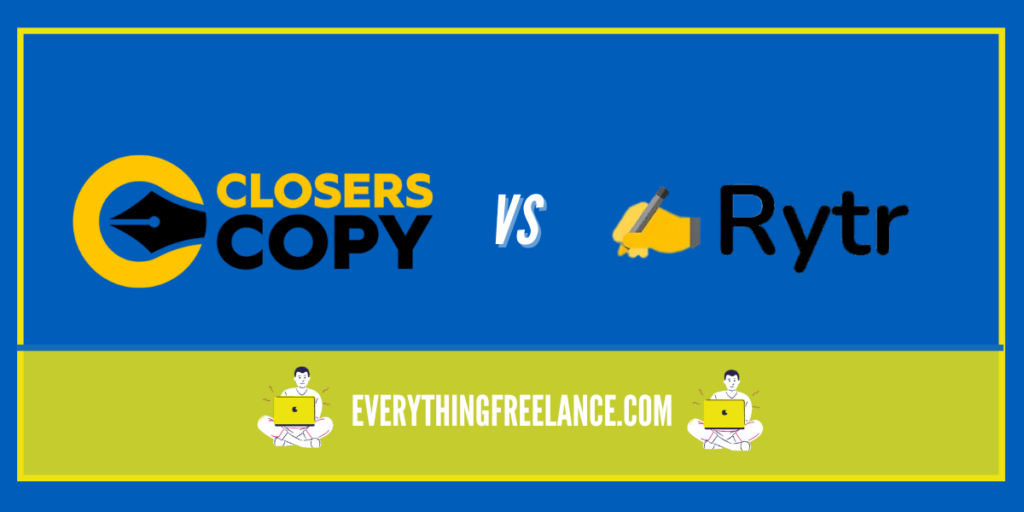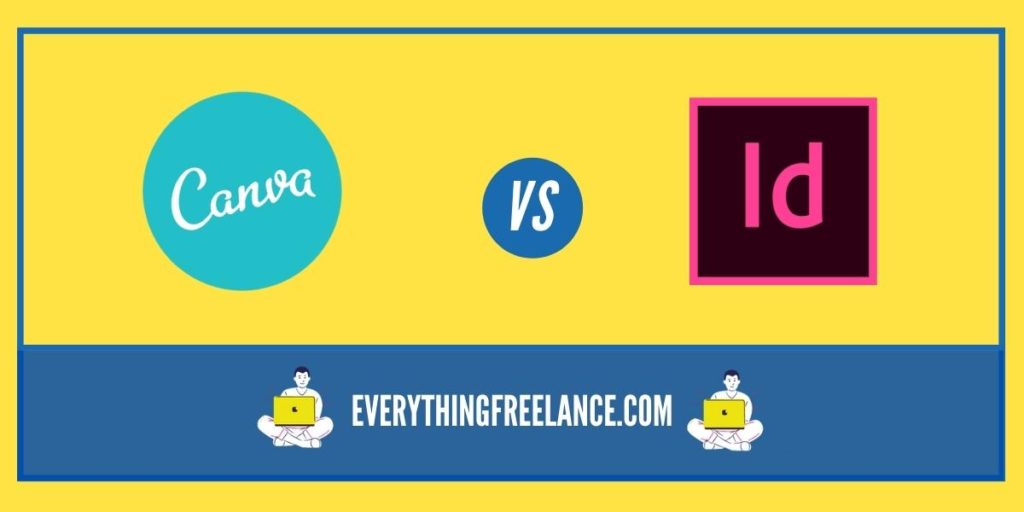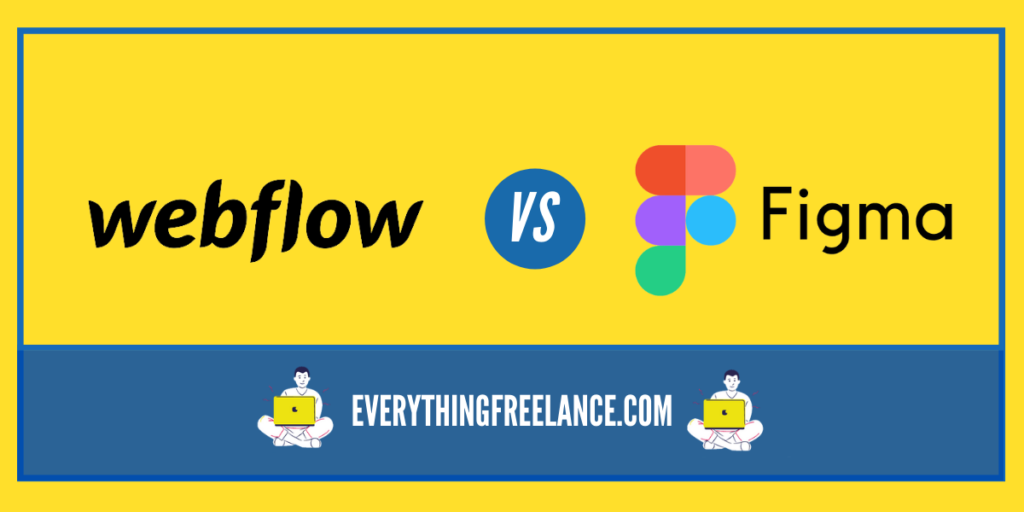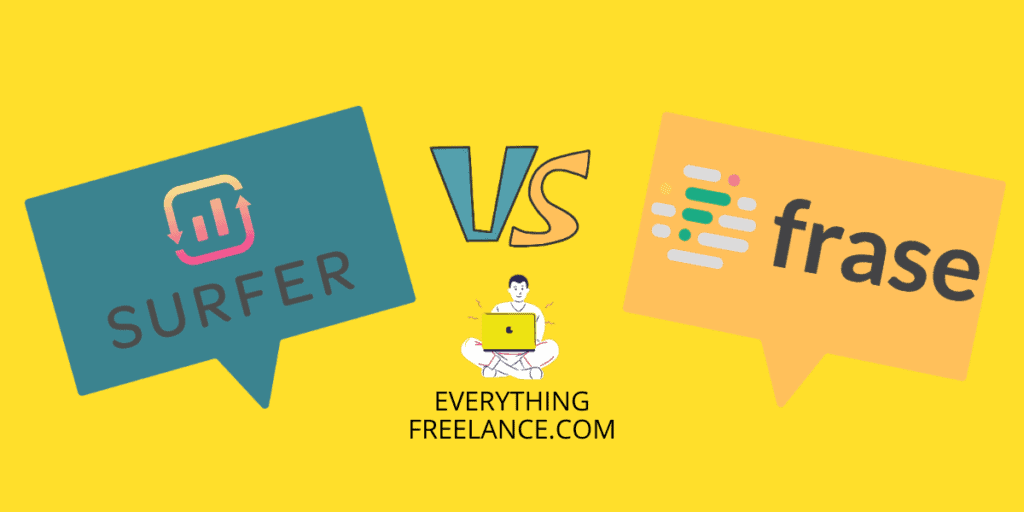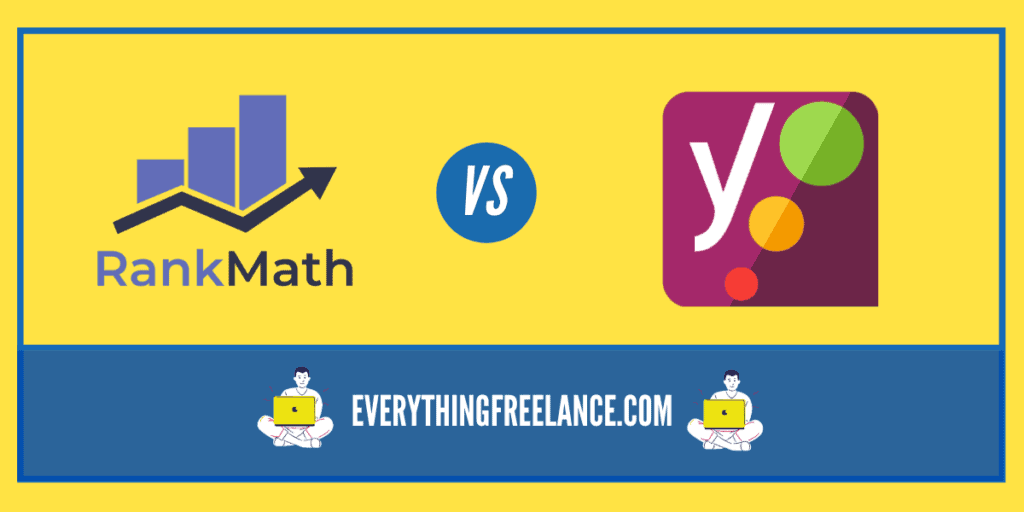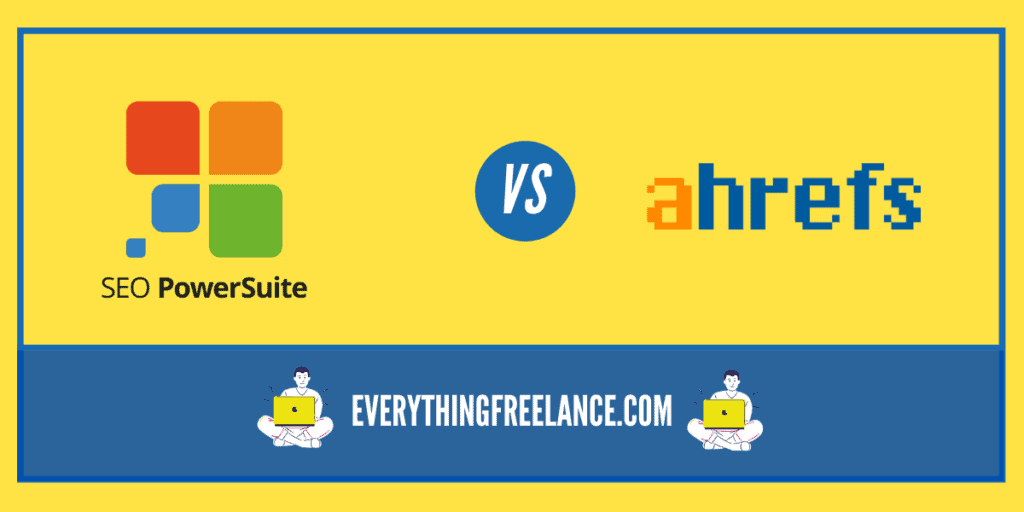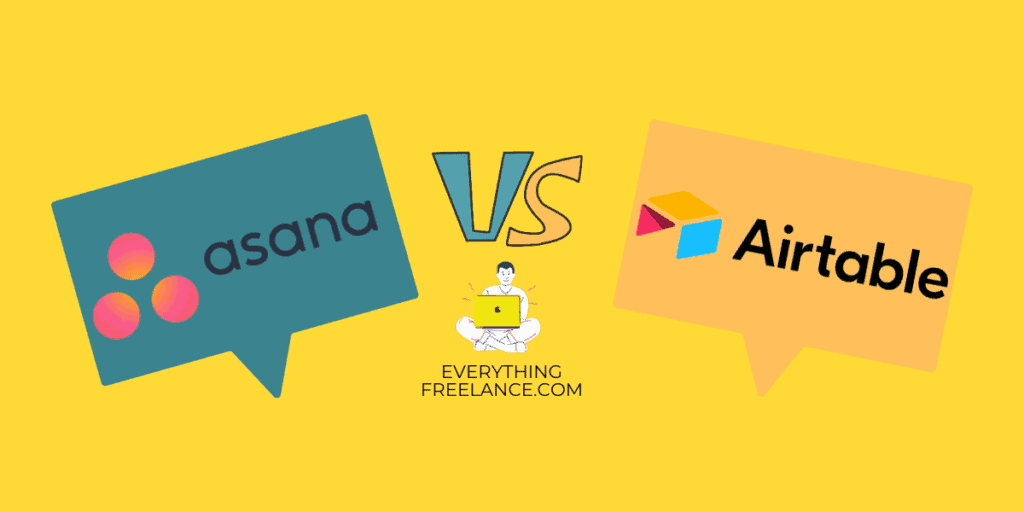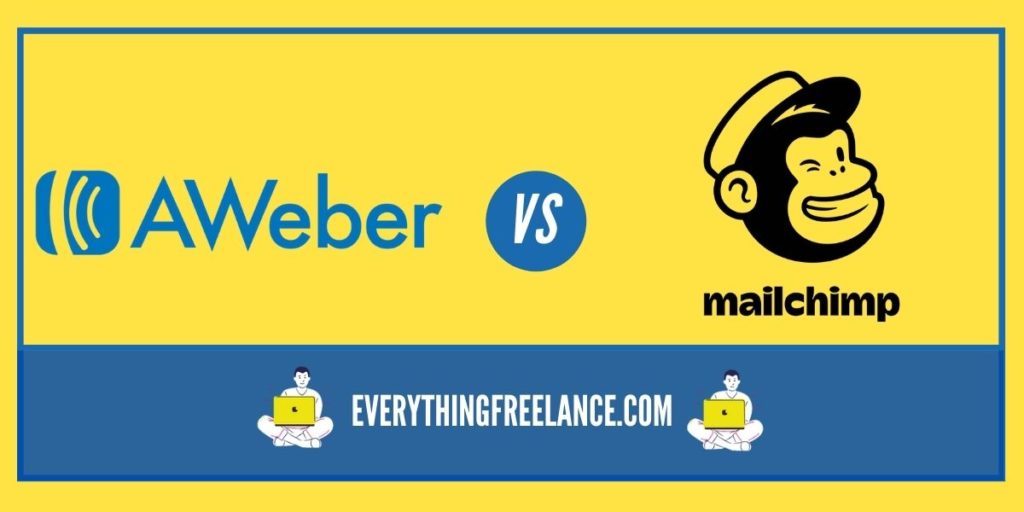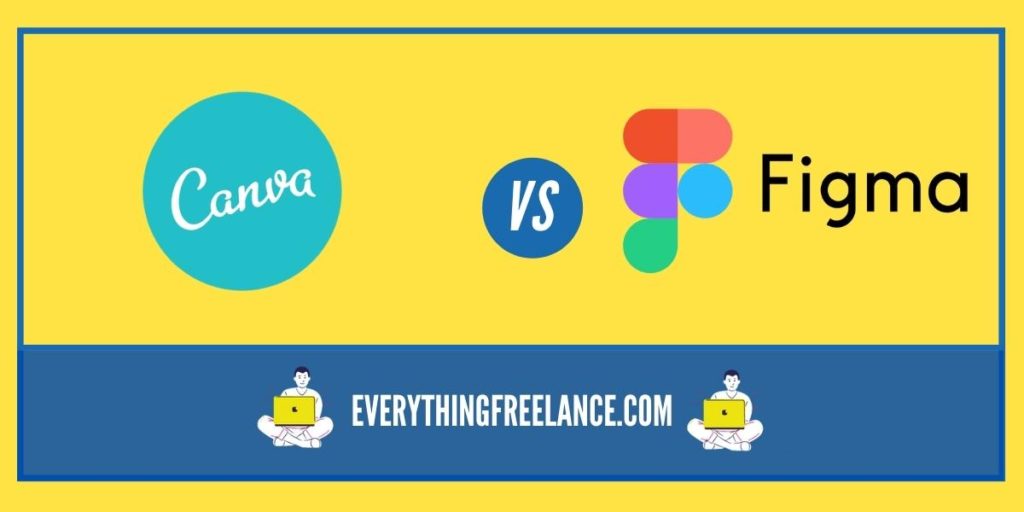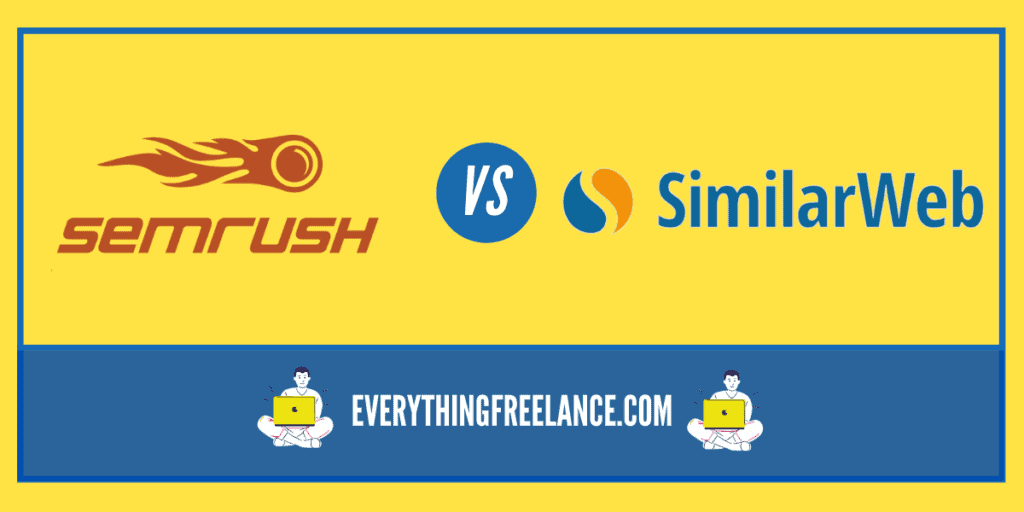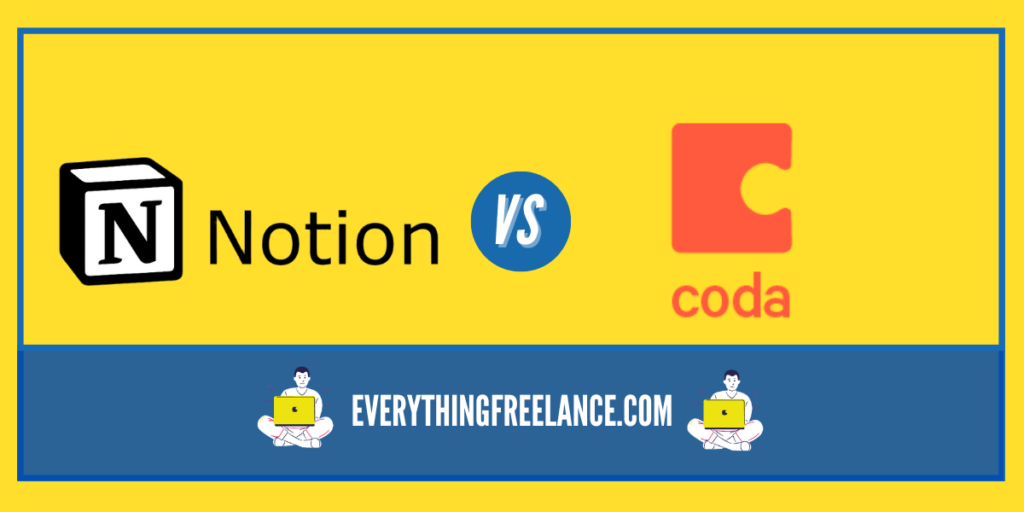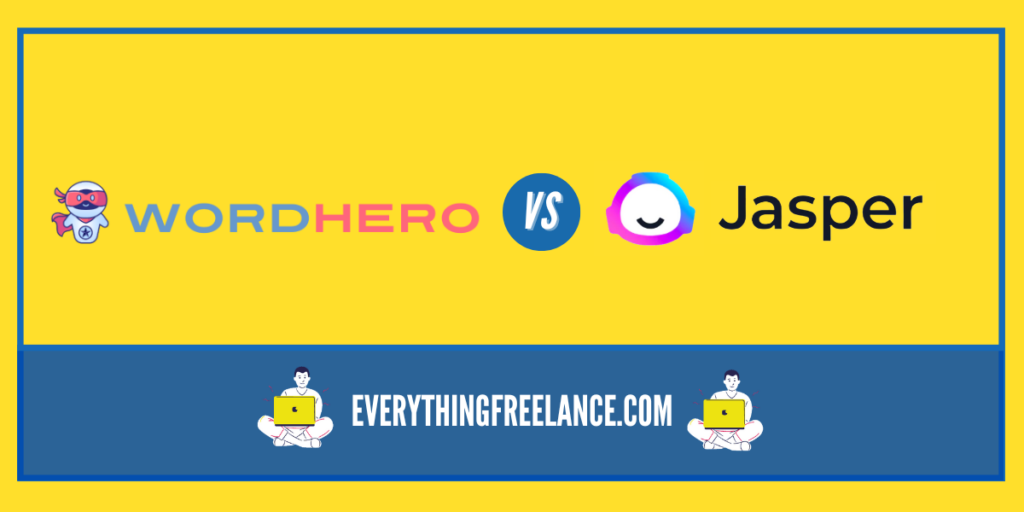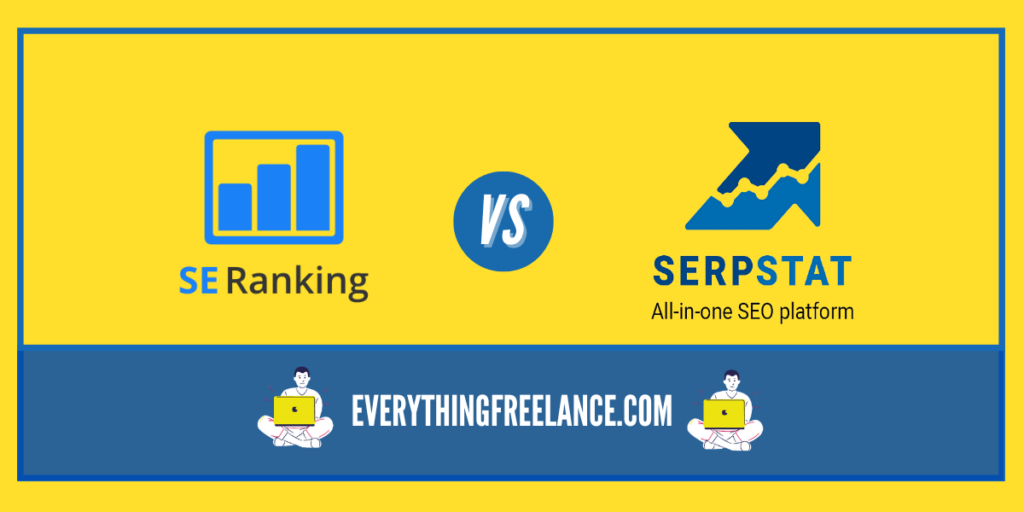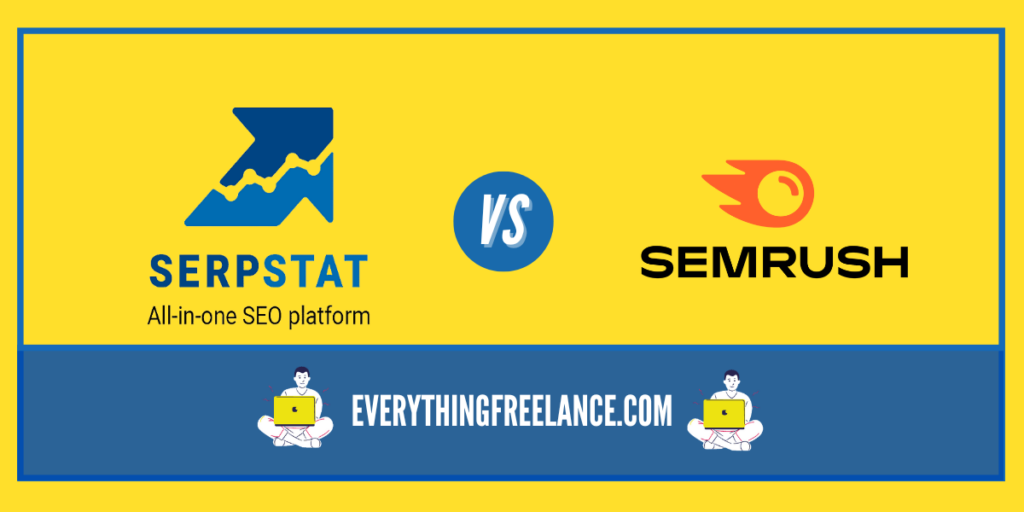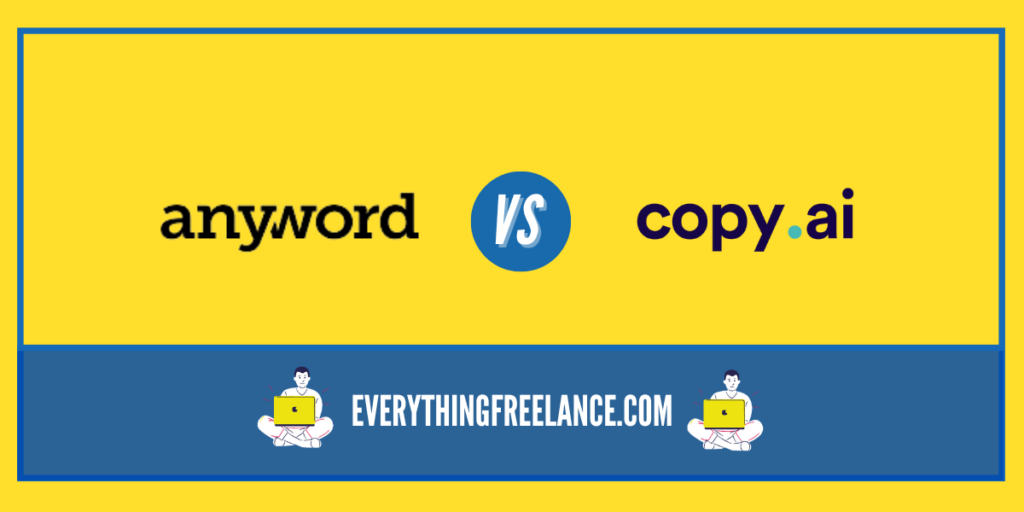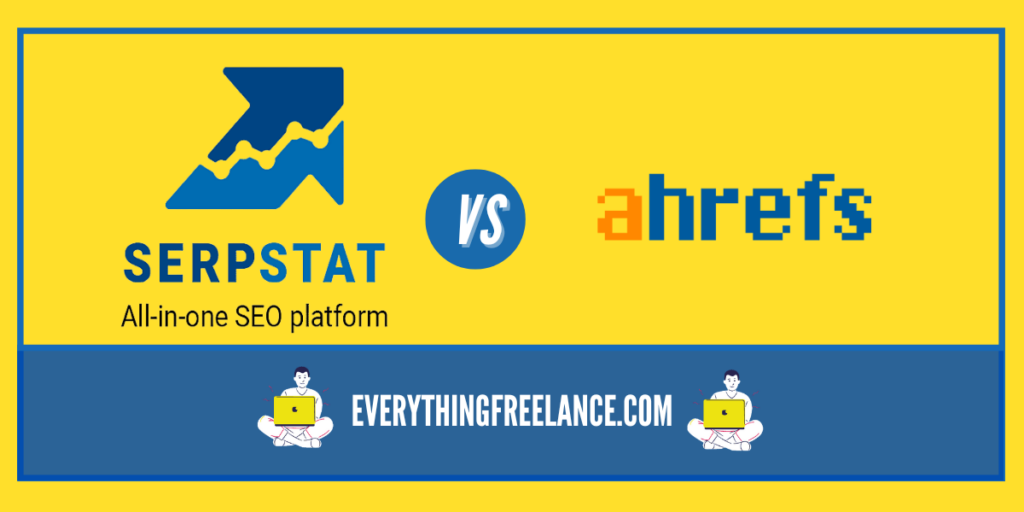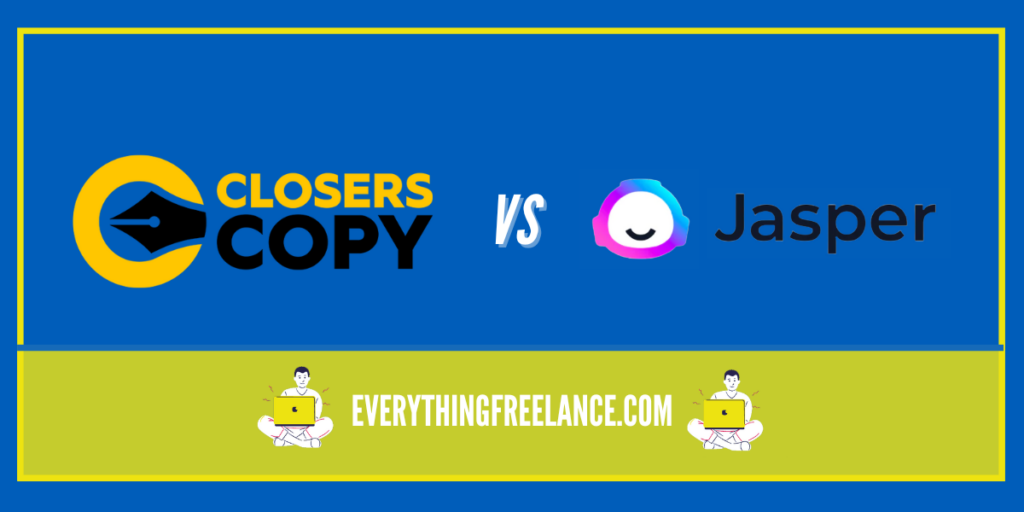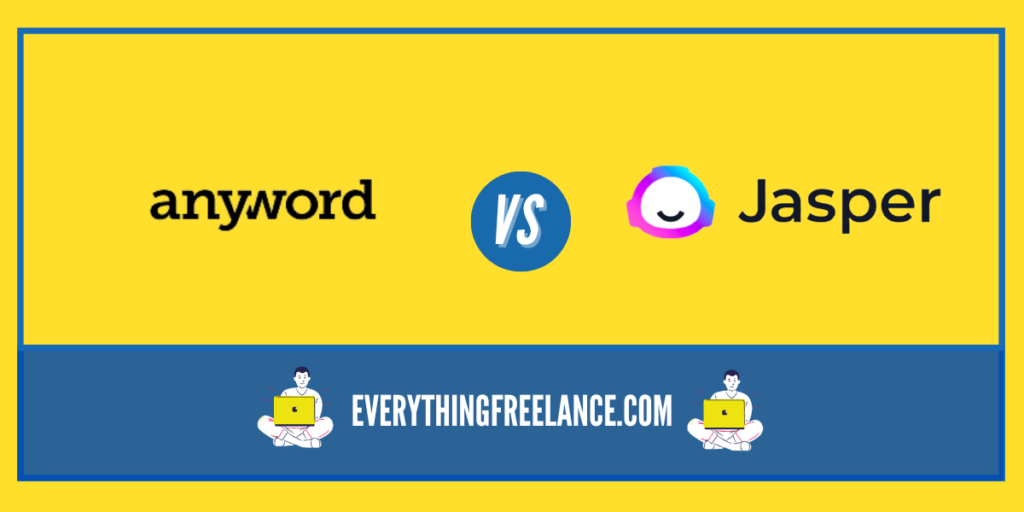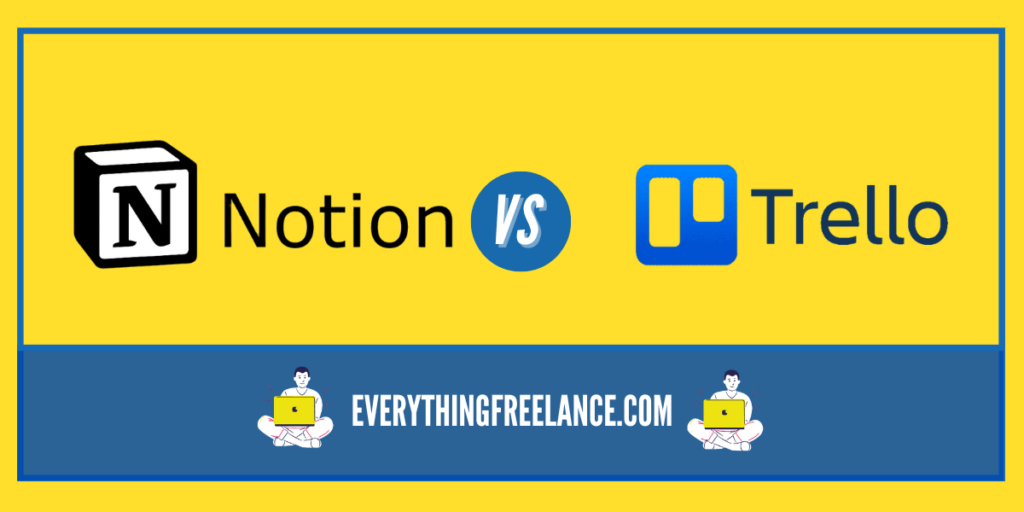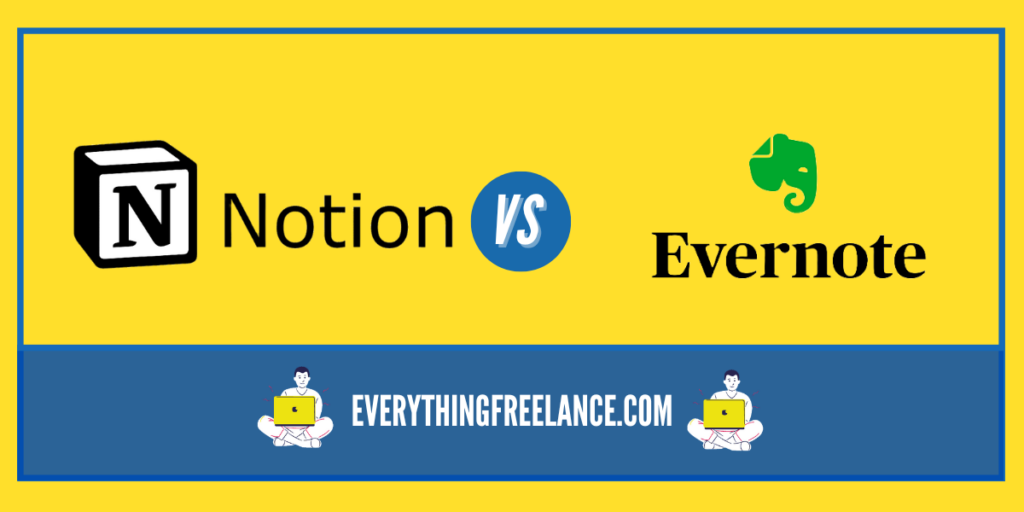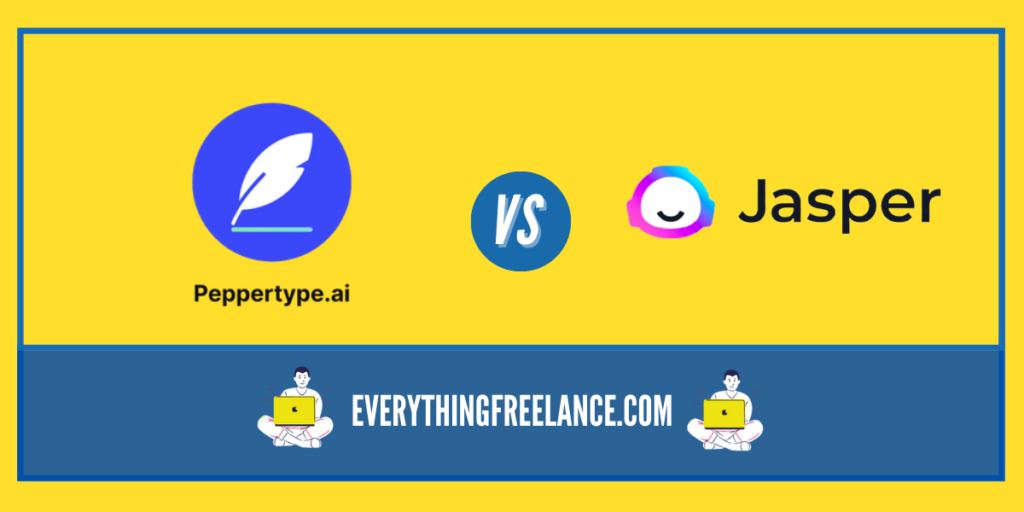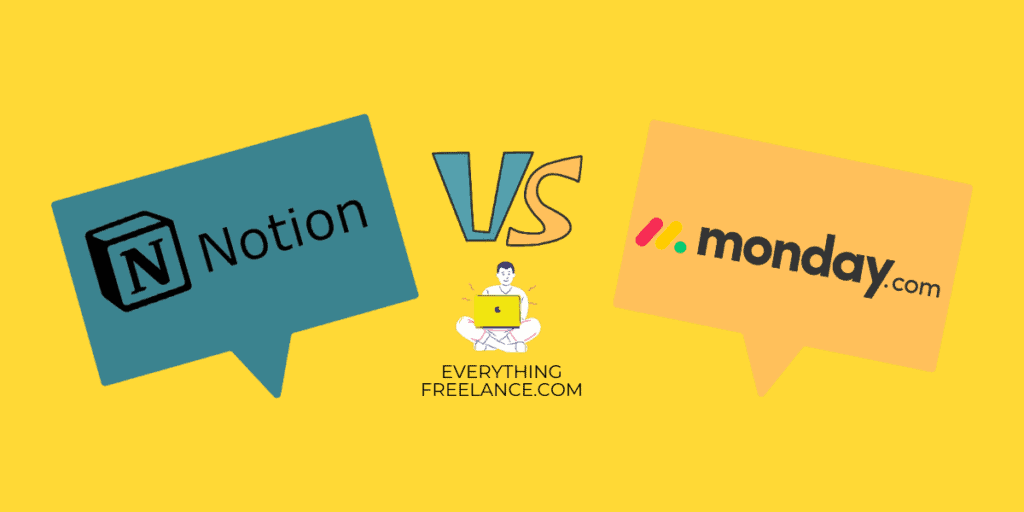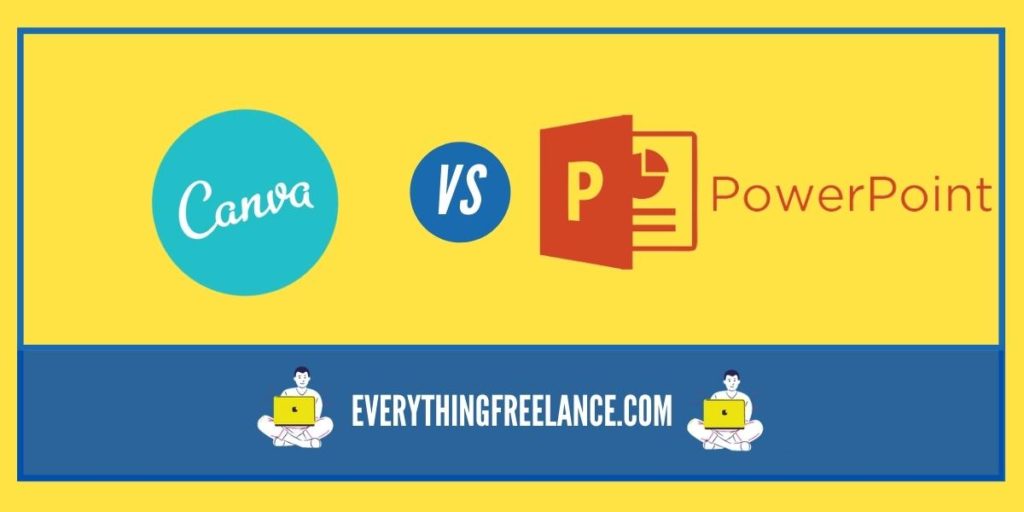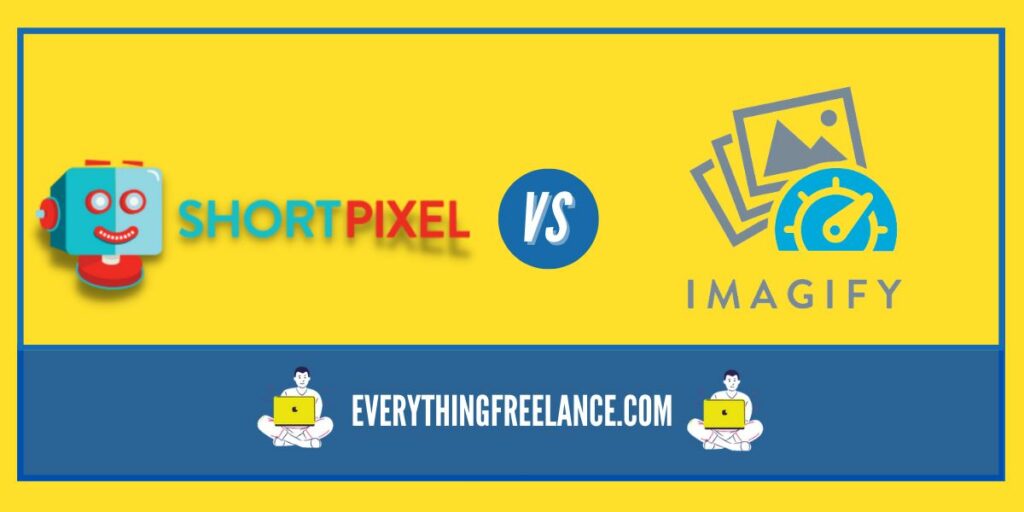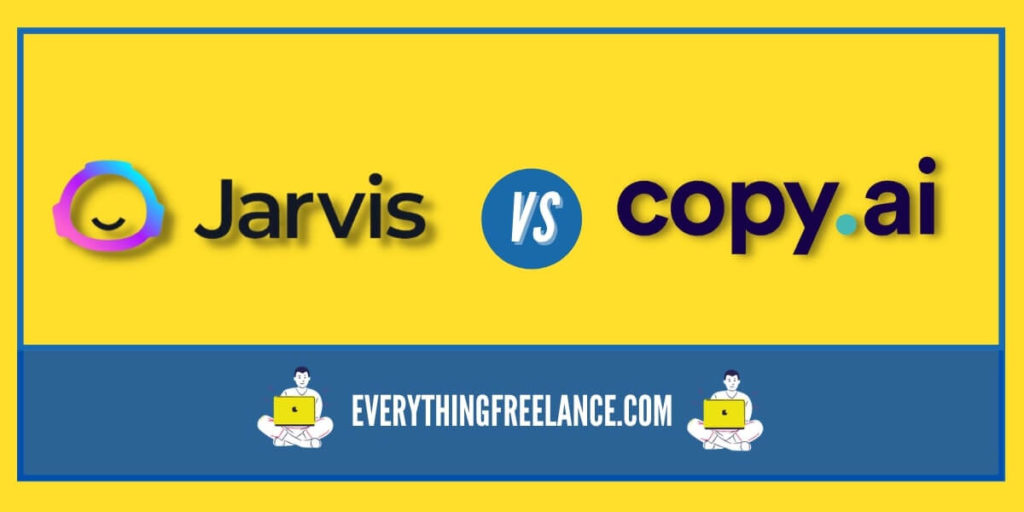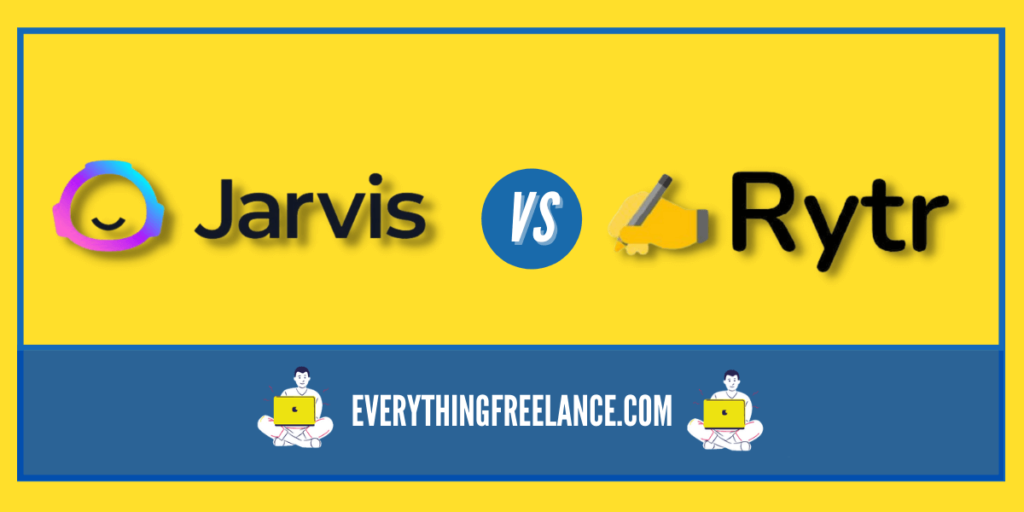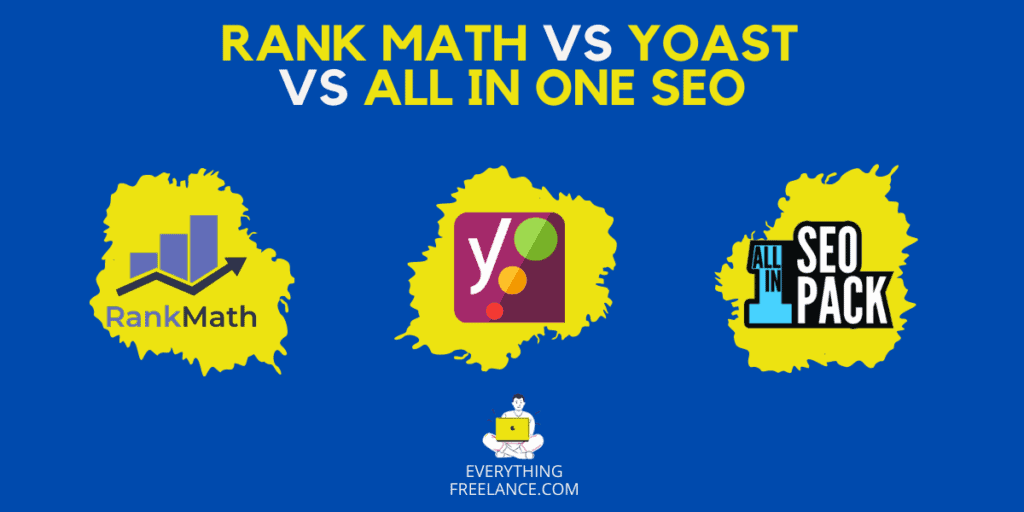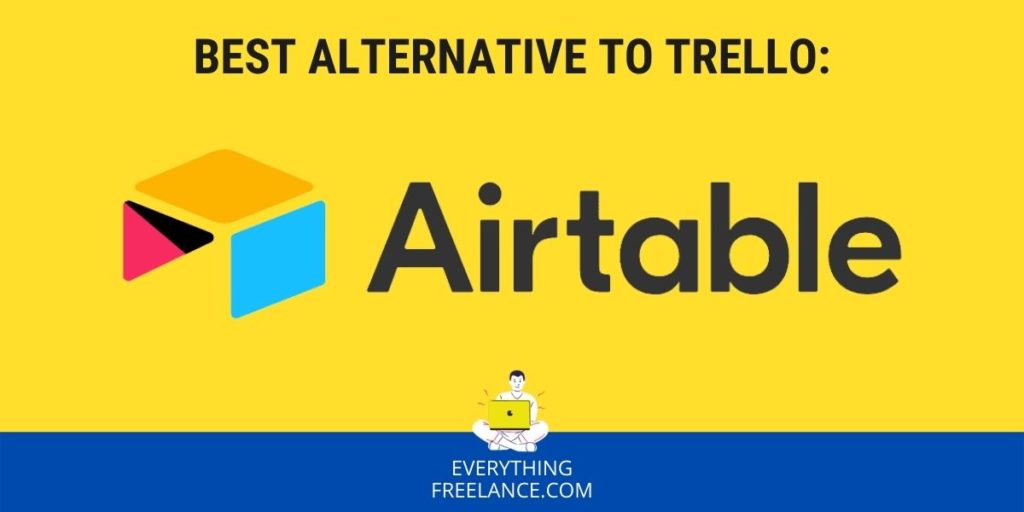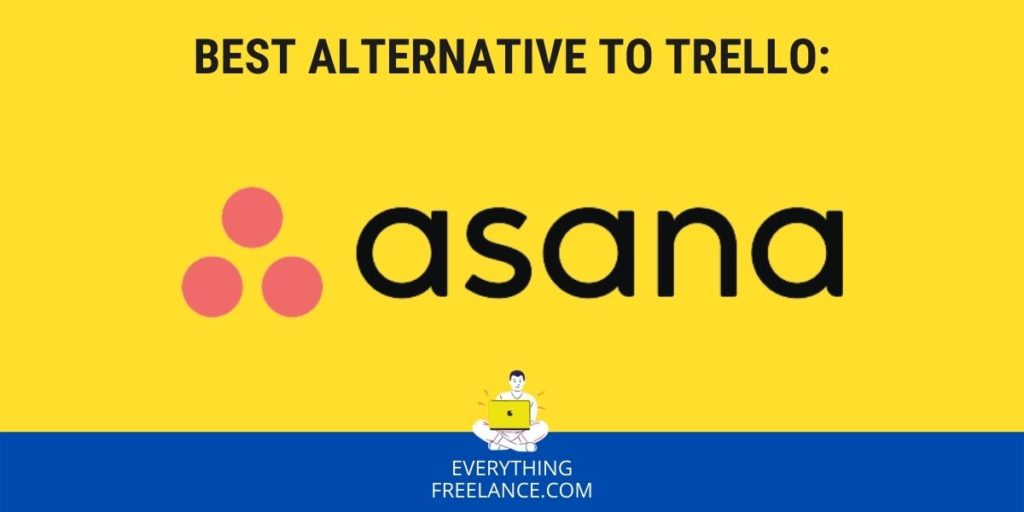In today’s digital age, AI-powered writing tools are becoming increasingly popular among content creators and marketers. Rytr and ClosersCopy are two such tools that have gained a lot of attention.
Both of these AI writing tools offer a range of features and capabilities that can help users save time and effort while creating high-quality content. However, the question remains: which one is more powerful?
In this article, we will compare Rytr vs ClosersCopy to determine which is better for your writing needs. We will evaluate their key features, ease of use, and overall effectiveness to help you make an informed decision. So, let’s dive in and see which AI writing tool comes out on top.
Overview of ClosersCopy Vs. Rytr
ClosersCopy is an AI Copywriting platform offering a range of pre-made templates and AI-generated content. It’s great for anyone who needs to create long-form content, as it can help you write SEO-optimized blogs or irresistible marketing copy in no time. ClosersCopy also offers detailed reporting so you can track your performance and make changes where necessary.

On the other hand, Rytr is an AI writer, content generator, and writing assistant that helps you create high-quality content with ease. It can be used for various tasks, such as landing page copies, emails, Facebook ads, story plots, Instagram posts, SEO titles, YouTube descriptions, taglines, interview questions, etc.
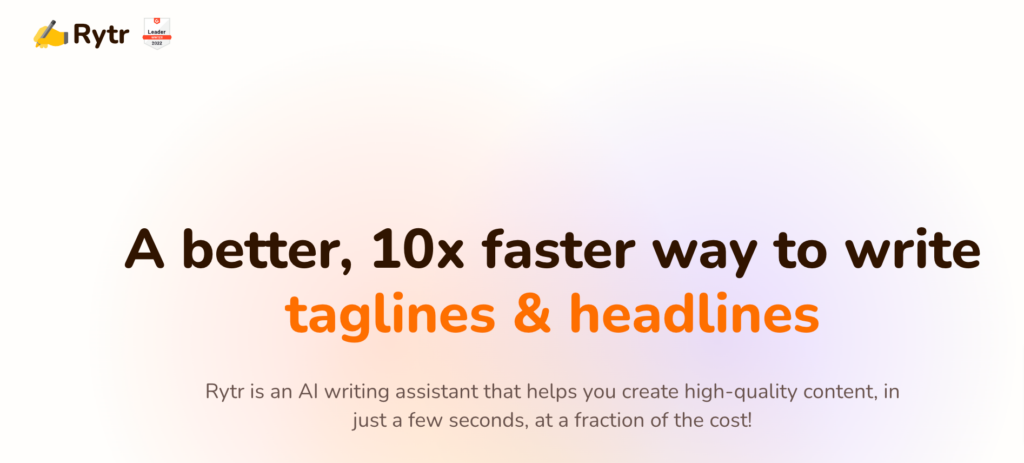
Rytr also offers an AI-powered grammar and style checker so you can ensure your work is accurate and error-free. With its intuitive user interface and fast processing speeds, Rytr makes it easy to get the job done quickly and efficiently.
ClosersCopy Vs. Rytr: Features Compared
| Feature | ClosersCopy | Rytr |
|---|---|---|
| Frameworks | Offers a range of frameworks powered by AI for SEO-optimized blogs or marketing copy. Provides detailed reporting. | Offers a smaller selection of frameworks. Focuses on creating shorter pieces of content, such as social media posts or taglines. Has an intuitive user interface and a powerful AI-driven grammar and style checker. |
| Long-Form Content Creation | Can generate SEO-optimized blogs or marketing copy with pre-made templates. Uses AI to research the topic and create a coherent and engaging piece. | Requires users to input a title, an introduction, and a conclusion. Once you input these elements, Rytr uses AI to generate the body of the article or whitepaper. |
| Sentiment Analysis | Provides detailed reporting on performance and suggestions on how to adjust sentiment to suit the target audience better. | Offers an AI-driven grammar and style checker as well as a sentiment analysis tool that provides an analysis of the sentiment of the text. |
| Plagiarism Checker | Provides detailed reports and allows users to compare documents side-by-side to understand better where any similarities may lie. | Scans for potential cases of plagiarism as part of its comprehensive checks. |
| Learning Curve | Designed with beginners in mind. Offers pre-made templates powered by AI. Provides detailed reporting features. | Has an intuitive user interface and a focus on creating shorter content pieces such as social media posts or taglines. Offers an AI-driven grammar and style checker. |
| Tones and Languages | Supports 100+ languages and can adjust the tone of the content to suit the target audience. | Offers 30+ languages, including different English variants and languages such as Spanish, French, and German. Can adjust the tone of the content to suit the target audience. |
Both tools offer a range of features and capabilities that can help users save time and effort while creating engaging and compelling content. In this section, we have made a Rytr vs. ClosersCopy feature comparison to determine which is the better choice for your writing needs.
Specifically, we will compare their frameworks, long-form content creation, sentiment analysis, plagiarism checker, learning curve, and languages and tones.
ClosersCopy Vs. Rytr: Frameworks
One of the primary features of any AI writing tool is its ability to generate frameworks or outlines for different types of content. ClosersCopy offers a range of frameworks powered by AI so you can make SEO-optimized blogs or irresistible marketing copy in no time. Additionally, it provides detailed reporting so you can track your performance and make changes where necessary.
Rytr, on the other hand, offers a smaller selection of frameworks. It is more focused on creating shorter pieces of content, such as social media posts or taglines, but its user interface is very intuitive and processes content quickly. Rytr also has a powerful AI-driven grammar and style checker so you can ensure your work is error-free.
ClosersCopy Vs. Rytr: Long-Form Content Creation
As we mentioned, Rytr focuses on creating shorter content pieces, such as social media posts or taglines. However, this doesn’t mean that it doesn’t offer a long-form content creation feature.
For the latter, remember that the tool requires users to input more information than ClosersCopy. Specifically, users must provide Rytr with a title, an introduction, and a conclusion. Once you input these elements, Rytr uses AI to generate the body of the article or whitepaper.
On the other hand, if you need long-form content, ClosersCopy may be the better option. It can generate SEO-optimized blogs or compelling marketing copy with its pre-made templates. The tool uses AI to research the topic and create a coherent and engaging piece. Simply put, this ClosersCopy feature is more streamlined and requires less input from the user.
ClosersCopy Vs. Rytr: Sentiment Analysis
Both tools offer powerful features that can help you assess the tone of your content. ClosersCopy provides detailed reporting so you can track your performance and make changes where necessary. On the other hand, Rytr offers an AI-driven grammar and style checker as well as a sentiment analysis tool that can help you gauge how people may interpret your writing.
This feature allows users to input a piece of text and receive an analysis of the sentiment of the text. Later on, the analysis can be useful for marketers to pinpoint the specific needs and wants of their target group.
ClosersCopy’s sentiment analysis feature is more advanced than Rytr’s. The tool not only analyzes the sentiment of the text but also provides users with suggestions on how to adjust it to suit the target audience better. Rytr’s sentiment analysis feature is more basic—it simply provides users with an analysis of the sentiment of the text.
ClosersCopy Vs. Rytr: Plagiarism Checker
ClosersCopy and Rytr have powerful plagiarism checkers that help you ensure your work is original. ClosersCopy’s plagiarism checker provides detailed reports so you can track potential instances of duplication or infringement. Additionally, it allows you to compare documents side-by-side to understand better where any similarities may lie.
Regarding Rytr, its AI-driven grammar and style checker scans for potential cases of plagiarism as part of its comprehensive checks.
ClosersCopy Vs. Rytr: Learning Curve
When it comes to ease of use, ClosersCopy and Rytr both have different learning curves. ClosersCopy is designed with beginners in mind, offering pre-made templates powered by AI. Additionally, its detailed reporting features provide insight into how your content is performing and make it simple to track progress and make adjustments.
Rytr also has an intuitive user interface, but, as pointed out before, its main focus is creating shorter content pieces such as social media posts or taglines. Hence, it processes content quickly and offers an AI-driven grammar and style checker so you can ensure your work doesn’t have any grammatical errors.
ClosersCopy Vs. Rytr: Tones and Languages
An important feature to consider when choosing an AI writing tool is its ability to cater to different tones and languages. ClosersCopy supports 100+ languages, and the tool can also adjust the tone of the content to suit the target audience.
Similarly, Rytr also offers a range of tones and 30+ languages, including different English variants and languages such as Spanish, French, and German. The tool can also adjust the tone of the content to suit the target audience.
Overall, both ClosersCopy and Rytr offer a wide range of tones and languages that can cater to the needs of content creators and marketers. However, ClosersCopy offers a wider scope, making it the better choice for users who need to create content for a global audience.
Pros & Cons: ClosersCopy Vs. Rytr
While both tools offer many benefits, they also have some drawbacks that businesses should consider before making a decision. In this section, we’ll compare the pros and cons of ClosersCopy and Rytr to help enterprises decide which tool is best suited for their needs.
ClosersCopy Pros and Cons
In the following sections, we’ll go through ClosersCopy’s most important benefits and drawbacks that you can face.
Pros of ClosersCopy
- Range of pre-made templates powered by AI to generate high-quality content.
- Detailed reporting features to help track performance and make changes where necessary.
- ClosersCopy has a user-friendly interface that makes it easy for beginners to use. The drag-and-drop editor, pre-built templates, and helpful prompts can save users time and effort.
Cons of ClosersCopy
- Limited customization options when using pre-made templates.
- ClosersCopy’s subscription plans can be expensive for small businesses or those with occasional content creation needs.
Rytr Pros and Cons
To compare both tools, you must take into consideration the pros and cons of Rytr. Below, we’ve elaborated more on the most common ones.
Pros of Rytr
- Rytr can generate content in multiple formats, making it a versatile business tool.
- An intuitive user interface for fast and efficient content creation.
- Has a powerful AI-driven grammar and style checker for accurate results.
Cons of Rytr
- Not suitable for long-form content such as blogs or SEO titles.
- Rytr can be time-consuming, and users may need to invest time to get the best out of it.
ClosersCopy Vs. Rytr: Pricing Comparison
When it comes to pricing, of course, ClosersCopy and Rytr offer different models. ClosersCopy offers three pricing plans, ranging from $49.99 to $99.99 per month, depending on the plan and features selected. The offered plans are the following:
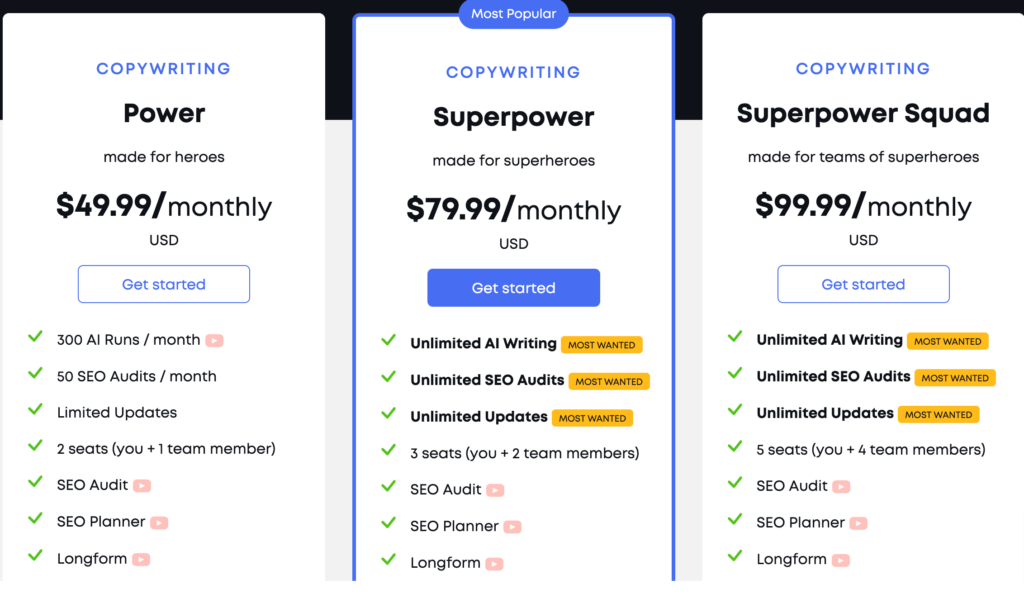
- Power plan – costs $49.99 per month, allows users to use up to 50 SEO audits per month, and comes with two seats.
- Superpower plan – costs $79.99 per month, allows users to use unlimited SEO audits, and comes with three seats.
- Superpower Squad plan – costs $99.99 per month and offers five seats.
Unlike ClosersCopy, Rytr offers a free plan with which you can create 10,000 characters per month. It also offers two paid plans:

- Saver plan – Costs $9 per month, and you can generate 100,000 characters per month.
- Unlimited plan – Costs $29 per month, and as its name suggests, you can generate unlimited characters.
ClosersCopy Vs. Rytr: Customer Support
Customer support is an essential aspect of any software or tool, and both ClosersCopy and Rytr offer support to their users. ClosersCopy provides users with email support, a knowledge base, video tutorials, and a community forum where you can interact and share knowledge.
On the other hand, Rytr provides you with email support and a live chat that can assist you with common queries. They also offer a detailed guide and an intro video to get familiar with the tool. You can also check them out on Facebook, Instagram, and Twitter.
Conclusion
In conclusion, Rytr and ClosersCopy are powerful tools that help you create high-quality content rapidly. While Rytr is focused on creating shorter pieces of content, ClosersCopy offers a range of pre-made templates to generate SEO-optimized blogs or great marketing copy in no time. Plus, both frameworks offer powerful features that can help you quickly produce quality results.
So which one is the more powerful option? Ultimately, it depends on what kind of content you need to create. With either option, you’re sure to get great results!
FAQs
What are the advanced features offered by ClosersCopy?
ClosersCopy offers advanced features like a plagiarism checker, sentiment analysis, and a chatbot. These features can be helpful for businesses that need to generate high-quality content and ensure its uniqueness.
What content formats can Rytr generate?
Rytr can generate content in multiple formats, including landing page copies, emails, Facebook ads, story plots, Instagram posts, SEO titles, taglines, etc. This is why Rytr is known as a versatile tool for businesses.
Does ClosersCopy offer a free plan?
No, ClosersCopy does not offer a free plan. Its prices range from $49.99 to $99.99 per month, depending on the plan you choose.
Can these tools replace human writers?
While AI-powered writing tools like Rytr and ClosersCopy can save time and generate high-quality content, they cannot replace human writers entirely. These tools are best used as aids to help writers overcome writer’s block, generate ideas, and improve their writing skills.


